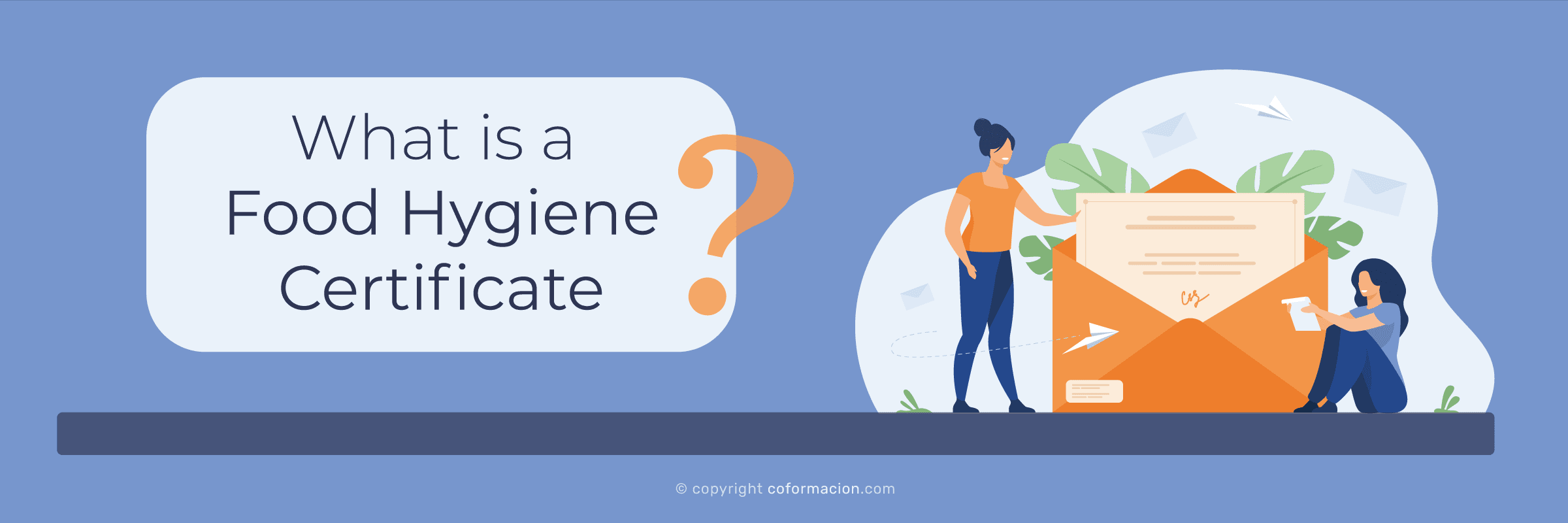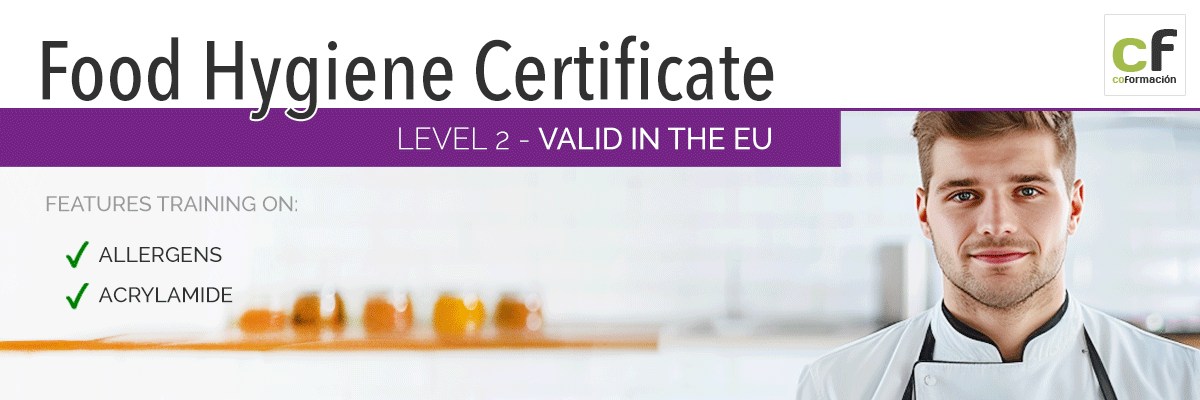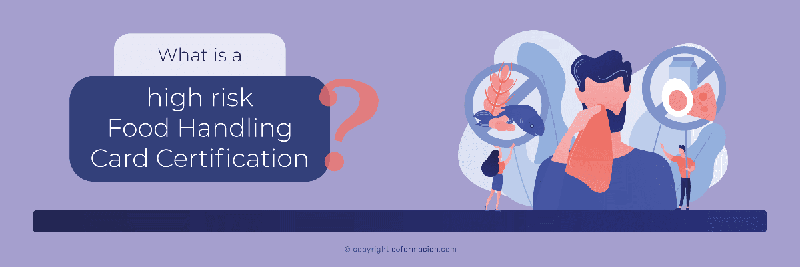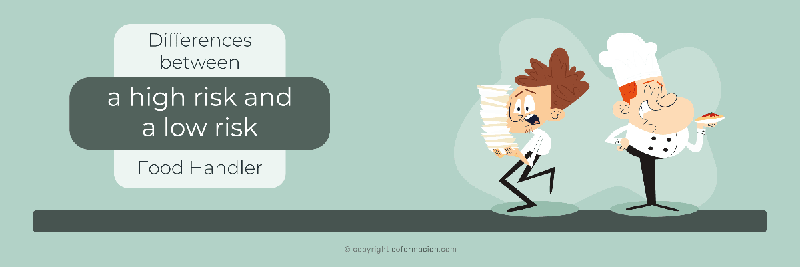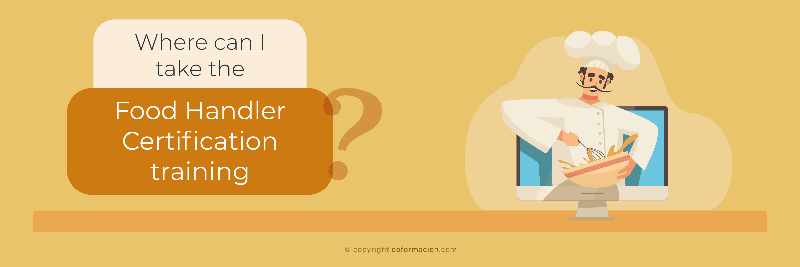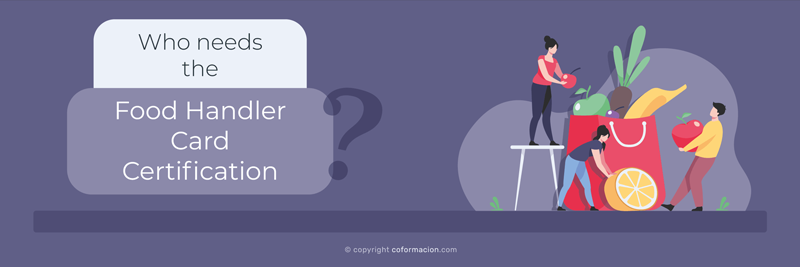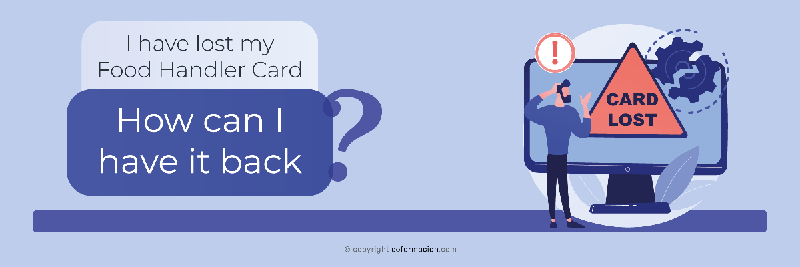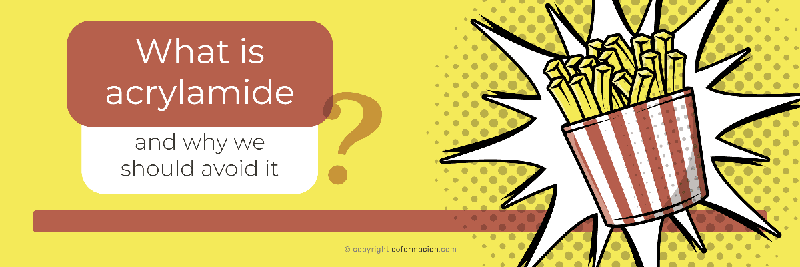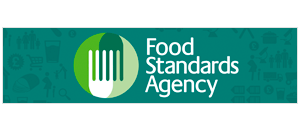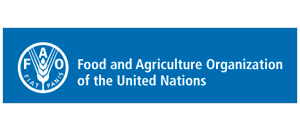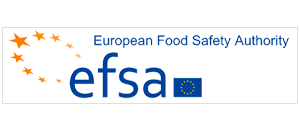What is a Food Hygiene Certificate?
05/05/2021You may have wondered, "What do I need a food hygiene certification for? There is a lot of doubt and confusion about this, so we'll try to clear up any questions you may have about it.
Table of contents:
What is the food hygiene certification and what is it for?
First of all, let's find out what it is. The so-called food hygiene certificate is currently a document issued by a training entity - in the form of a certificate or diploma - which certifies that the person carrying the document has received a specific course in this area and has passed the test to demonstrate the required level of knowledge in the field of food safety.
This certificate entitles a person to handle food safely both for himself and for the persons who will be consuming the food. They are required by law to take such a course in food handling, either from the company for which they work or from private training academies or public bodies. In the event of poisoning, inspection or other problems, the health authorities will most likely require that company personnel have received such training and demonstrate this through some form of certification. If they do not have it, the company is exposed to possible fines and heavy penalties.
What is the purpose of the Level 2 (high risk) food hygiene certificate?
Training in high-risk food handling is especially targeted at people who are going to handle food directly. It is now common practice for training companies to offer comprehensive courses covering 'high-risk food handling'.
In addition, this training is extended with other complementary training material, such as the Food Information Lay (Allergens).
Therefore, we can say that the food handling courses given by specialized training entities, with a continuous and solid trajectory, are considered as high risk food handling courses.
Is a food hygiene certificate required?
If in a direct or indirect way, one is in contact with food at any time during its cycle, from the production of raw material to its arrival at the consumer, one must have the certification of having received specific training on food handling, that is, the food hygiene and safety certificate.
All those who use everything from tools and utensils, plant protection, treatment and feeding of livestock, transport, housing, agricultural production, to the marketing of packaged or unpackaged food, processed or unprocessed, including all intermediate handling, processing, packaging, preservation, supply and transport processes, must have received specific training and must be able to demonstrate this through the necessary certification.
In order to obtain a Food Hygiene Certificate, you must take a specific course and pass a test of achievement. So, we can say that yes, it is mandatory.
What is the purpose of the food hygiene certificate?
Food is susceptible to contamination in the handling process, from the production of raw materials such as meat, vegetables, fruits and others to their processing, packaging, transport, cooking, service, etc. Hence the importance of minimising the risks of direct, indirect and cross contamination throughout the food chain.
An example of the fact that this is sometimes not the case is the news that we periodically find in the media regarding food poisoning from products contaminated with different bacteria and pathogenic microorganisms that can sometimes be fatal, and that could have been avoided with the correct handling of food.
Applying the European regulations in this respect, the responsibility for training in food handling lies with the companies themselves, which must have the necessary knowledge for their staff. As the labour market is fluid and workers change jobs, they are often asked to be able to demonstrate that they have been trained and have acquired the knowledge necessary for food handling to continue developing their profession, regardless of where they have been trained.
To prove this, there is a food handler's certificate which, as its name suggests, certifies that a person has acquired the necessary knowledge to be able to carry out his or her professional activity in contact with food, to a greater or lesser extent, without having to undergo constant training and examination when changing jobs.
More Articles

How to renew your Food Hygiene Certificate
04/20/2021

Is it mandatory to have a Food Handler Card?
04/08/2021

Food Handler Card expiration
03/04/2021
